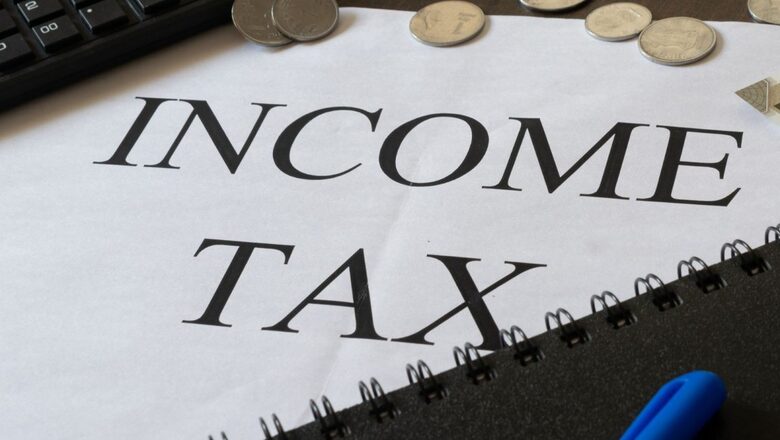
views
ITR Filing AY 2022-23: The last date of filing income tax return (ITR) for the assessment year 2022-23 or financial year 2021-22 is July 31, 2022. Do you have to file an income tax return even if you earn less than Rs 2.5 lakh a year? Every salaried individual must file the return of income, even if his or her taxable income falls below the threshold level from which income tax is levied.
Under the old income tax regime, the basic tax exemption limit has been fixed at Rs 2.5 lakh for taxpayers below 60 years of age. For senior citizens or those between 60 and 80 years of age, the basic exemption limit will be at Rs 3 lakh. For those who are 80 years of age and above, the exemption limit of Rs 5 lakh. Under the new concessional income tax regime, the basic tax exemption celing has been fixed at Rs 2.5 lakh, irrespective of the age of the taxpayers. However, experts suggest all taxpayers to file their income tax returns for various reasons.
Why Should you File ITR Even if your Income is Below Exemption Limit?
“If a person’s income is not in the taxable bracket, filing income tax returns still have numerous advantages,” said Abhishek Soni, CEO & co-founder, Tax2Win. Explaining the benefits of filing ITR, Soni added, “an income tax return holds immense legal value as it acts as a legal identity proof, income proof, an important document while applying for loans, can help you claim deductions, carry forward your losses, and avoid several penalties.”
Moreover, it is important to file ITR to claim refund of tax deducted at source (TDS) by the employers. “One can’t claim ITR refund against the TDS deducted by its employer or by any other paymaster. So, if your income is below basic exemption limit, then also it’s beneficial to file income tax return in certain situations,” mentioned Sujit Bangar, founder at Taxbuddy.com.
“It is advisable to file a nil income tax return even when for a couple of tax years the income is below the minimal income threshold that mandates tax return filing to ensure that there is no gap in the tax filings records. At times there are automated notices sent by the tax department asking for reasons why tax return is not filed. Hence filing a return will avert these,” explained Aarti Raote, partner at Deloitte India.
If gross total income is more than basic exemption limit even if total taxable income is not, taxpayers must file ITR.
On April 21, 2022, the Central Board of Direct Taxes (CBDT) issued a notification — the Income-tax (Ninth Amendment) Rules, 2022 — to mention the additional conditions where it is compulsory to file income tax return even when the individual’s income is less than basic exemption limit.
Income Tax Return Filing Must in these Four Conditions
1) An individual has to file income tax return if his total sales, turnover, or gross receipts in the business exceeds Rs 60 lakh during the previous year
2) If total gross receipts in profession exceed Rs 10 lakh during the previous year, the person needs to file ITR.
3) If TDS or TCS during the year is Rs 25,000 or more, it is mandatory to file a return of income tax. For senior citizens, this rule will be applicable if the individuals aggregate TDS or TCS is Rs 50,000 or more a financial year.
4) The deposit in one or more savings bank accounts of the person, in aggregate, is Rs 50 lakh or more during the previous year, it is a must to furnish income tax return.
These new rules will be applicable for filing of income tax return for the financial year 2021-22 or assessment year 2022-23.
Earlier in 2019, the central government had widened the income-tax filing criteria. It is mandatory to file income tax if the person deposits Rs 1 crore or more in the current account; spend Rs 2 lakh or more on foreign travels, pay Rs 1 lakh or more on electricity bill.
Read all the Latest News and Breaking News here

















Comments
0 comment